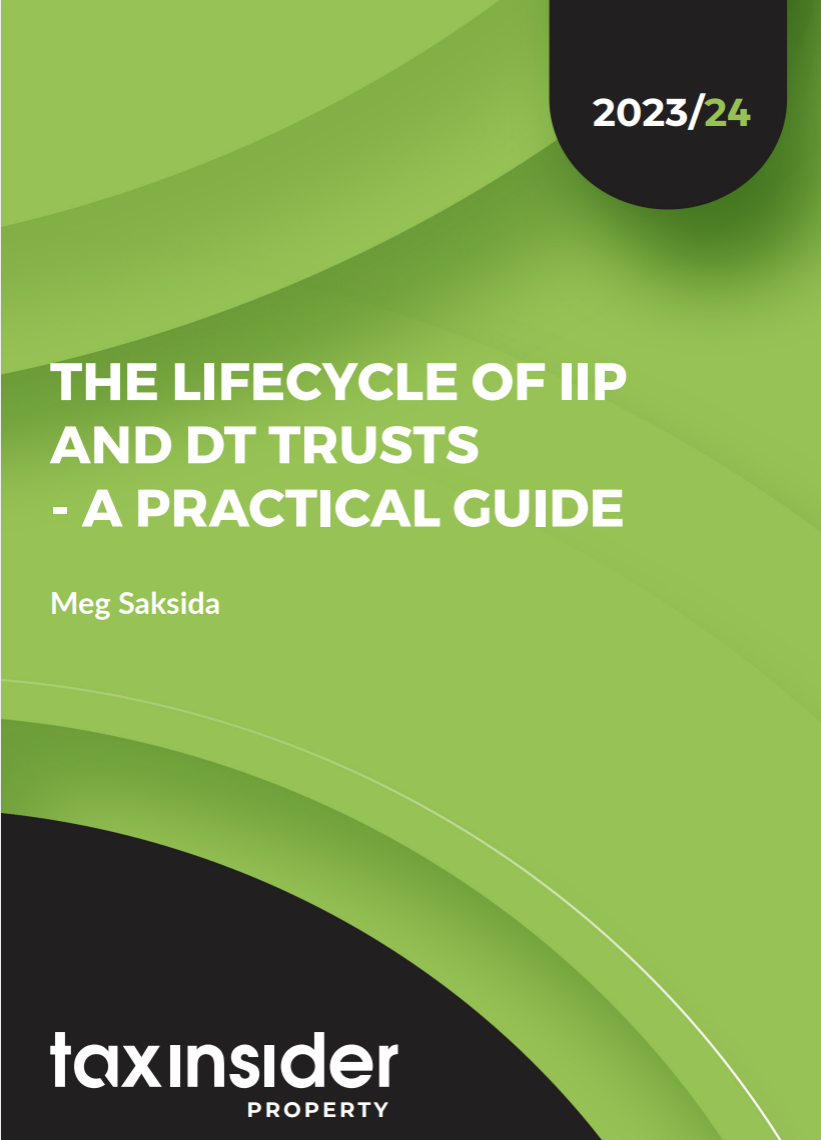 Malcolm Finney examines precisely what constitutes mandated trust income.
Malcolm Finney examines precisely what constitutes mandated trust income.
----------------------------
For more in depth discussion on this important area of business taxation, please see our newly released guide, The Lifecycle of Interest in Possession and Discretionary Trusts: A Practical Guide.
----------------------------
Typically, income tax is levied on persons who are entitled (i.e. beneficially) to income but it may also be levied on persons who may not be entitled to income but are in receipt of it. For example, ITTOIA 2005 s. 8 provides, “The person liable to any [income] tax charged under this Chapter is the person receiving or entitled to the profits” (see also ITTOIA 2005 s 271).
Interest in possession trusts
The income tax treatment of trustees of interest in possession trusts is different from trustees of discretionary (and accumulation) trusts. With respect to trustees of trusts with an interest in possession, there is no distinction between qualifying interests in possession and non-qualifying interests in possession (unlike with respect to inheritance tax). An interest in possession is an interest in settled property where the person having the interest has an immediate entitlement to any income produced by the trust property as the income arises (Pearson v IRC [1981] AC 753.
Trustees of interest in possession trusts are subject to, and assessed to income tax on trust income at the 20% basic (not trust) rate or the dividend ordinary (not trust) rate of 8.75%. However, the interest in possession beneficiary, who is entitled to the trust income as it arises, is subject to income tax thereon (even if the trustees do not actually pay the income to the beneficiary in the tax year). Unlike discretionary trusts, the interest in possession trust is not itself the source of income for the beneficiary.
Mandating by the trustees
No assessment on trustees is possible if the income accrues to the beneficiary directly and not the trustees. This will arise if the trustees authorise the receipt of the income by the beneficiary. This is commonly referred to as mandating the income. The trustees are then required to notify HMRC of the name and address of the beneficiary.
In the past, there has been some uncertainty as to what HMRC would accept as mandated income. At its simplest, trust income is mandated to the interest in possession beneficiary when the beneficiary receives that income directly from the source. This means that the income must not pass through the trustees’ bank accounts.
Care must therefore be exercised where mandating to a beneficiary is required. In practice, a registrar of a company is often given a mandate to pay dividends arising on shares to be paid directly to the trustees’ bank account, with the trustees then transferring the income to the beneficiary. In a similar vein, a bank or building society is often instructed to pay any interest arising on deposits directly to the trustees’ bank account, with the trustees then forwarding the interest to the beneficiary. In both these scenarios, there is no mandating to the beneficiary as the income is not received directly, as it has been routed via the trustees’ bank accounts. Beware also of the position concerning rental income. Where rental income is collected by a managing agent and passed on to the trustees prior to onward transmission to the beneficiary, again, no mandating to the beneficiary has occurred.
If trustees mandate the trust income to the interest in possession beneficiary, who fails to declare the income and discharge any income tax liability thereon, HMRC is unable to then assess the trustees.
Practical point
Trustees should consider mandating trust income which reduces their need to file necessary tax returns and possibly expedites receipt by a beneficiary.



